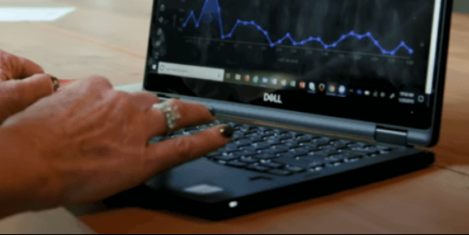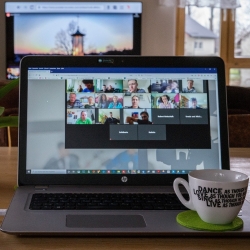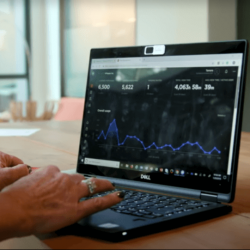To provide the best experiences, we use technologies like cookies to store and/or access device information. Consenting to these technologies will allow us to process data such as browsing behaviour or unique IDs on this site. Not consenting or withdrawing consent, may adversely affect certain features and functions.
The technical storage or access is strictly necessary for the legitimate purpose of enabling the use of a specific service explicitly requested by the subscriber or user, or for the sole purpose of carrying out the transmission of a communication over an electronic communications network.
The technical storage or access is necessary for the legitimate purpose of storing preferences that are not requested by the subscriber or user.
The technical storage or access that is used exclusively for statistical purposes.
The technical storage or access that is used exclusively for anonymous statistical purposes. Without a subpoena, voluntary compliance on the part of your Internet Service Provider, or additional records from a third party, information stored or retrieved for this purpose alone cannot usually be used to identify you.
The technical storage or access is required to create user profiles to send advertising, or to track the user on a website or across several websites for similar marketing purposes.
 A new paper from the British Council for Offices outlines how technology is being used in offices to combat Covid-19. While offices may be shut in the UK until 2nd December at the earliest, the paper outlines how the sector is adapting and embracing a range of new technology to ensure that offices can comply with hygiene and social distancing measures. (more…)
A new paper from the British Council for Offices outlines how technology is being used in offices to combat Covid-19. While offices may be shut in the UK until 2nd December at the earliest, the paper outlines how the sector is adapting and embracing a range of new technology to ensure that offices can comply with hygiene and social distancing measures. (more…)






 Staff need on average three days a week (2.91) in the office to achieve maximum productivity, according to a new study by
Staff need on average three days a week (2.91) in the office to achieve maximum productivity, according to a new study by 
 A survey issued by architecture, design, and planning firm
A survey issued by architecture, design, and planning firm 
 GlobalWebIndex (GWI), together with LinkedIn’s B2B Institute, has launched “
GlobalWebIndex (GWI), together with LinkedIn’s B2B Institute, has launched “
 A new survey by
A new survey by 
 The majority of students don’t expect they will be able to find a clear career path after graduating and almost one in 10 believes their prospects are ‘bleak’, a new survey claims. A poll of 1723 poll students conducted by UNiDAYS and insurance company
The majority of students don’t expect they will be able to find a clear career path after graduating and almost one in 10 believes their prospects are ‘bleak’, a new survey claims. A poll of 1723 poll students conducted by UNiDAYS and insurance company 
 New analysis published by the
New analysis published by the 
 As COVID-19 has forced businesses to change where and how they work this year, the learning disability charity
As COVID-19 has forced businesses to change where and how they work this year, the learning disability charity 



 According to new research from
According to new research from 








November 20, 2020
HR professionals must seek a new connection with the IT team
by Joseph Morley • Comment, Technology